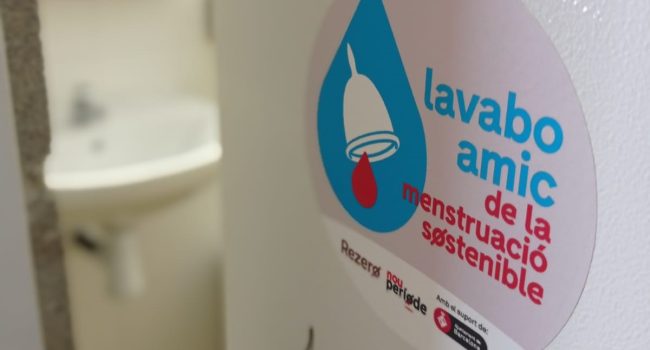

Disposable menstrual protections represent an important source of plastic pollution, as they are products that are composed mostly of plastic, and become waste after a single use. The report “The environmental and economic costs of Single-Use Menstrual Products, Baby Nappies and Wet Wipes”, published in November 2019 by Reloop, Rezero, Zero Waste Europe and Break Free from Plastic, and which was funded by the European Union tells us that cumulatively in the 28 EU member states in 2017, 49 billion units of menstrual protection were used, generating about 590,000 tonnes of waste over the year.
In addition to that alarming information, it is important to note that sanitary pads and wipes are typically flushed down the toilet after use, and can end up in the marine environment via the wastewater system. Single-use sanitary pads and wipes are the most common items found in the marine environment (6.2% of waste collected on UK beaches, 5% of “floating waste” on the Catalan coast), and when they disintegrate, they release a substantial amount of microplastics into the water.
Reusable alternatives to periodic protection have a real impact on lessening the amount of waste generated. Indeed, it is estimated that the use of a cup results in a 99% reduction in waste that would be generated by using single-use products. This means that if only 20% of menstruating people use a cup instead of single-use products, the amount of waste would be reduced by 100,000 tons per year for the 28 EU member states combined.
The objective of the initiative “Network of public sustainable period friendly toilets” led by Rezero is to extend the existing network of public sustainable friendly toilets which was created in 2021 at municipal level (city of Barcelona), to other regional territories and to the main public universities of Catalonia and the Balearic Islands.
The initiative’s goal is threefold: primarily its goal is to raise awareness about the environmental, health, economic and social impacts of single use period products and to spread the word about reusable alternatives, but it also brings solutions to the menstrual right of having access to secure and hygienic infrastructures for menstrual habits and, at the same time, it contributes to break the menstrual taboo and reach menstrual equity.
This is why the project also promotes menstrual education and engages different stakeholders in normalizing menstruation amongst society, as well as facilitating the use of sustainable products, and contributes to empower the community.
The network currently counts with more than 120 public toilets identified in Barcelona. The goal of the project is to reach 500 more toilets.
To be identified toilets need to accomplish several criteria such as the presence of tap water in the same compartment than the toilet, presence of toilet paper and hands soap (preferably toxic free and neutral pH), presence of garbage container and well-functioning of the light and door-close system.
All the points that are identified and obtain the category of sustainable period friendly toilet receive sticker badges and communicative material (informative poster) and are included in an interactive virtual map. Through this initiative we’re spreading the word about the existence of other reusable menstrual products which are much more respectful for our bodies and environment. They prevent the generation of menstrual waste, thus they also prevent plastic litter from menstrual products and environmental contamination of plastics and microplastics.